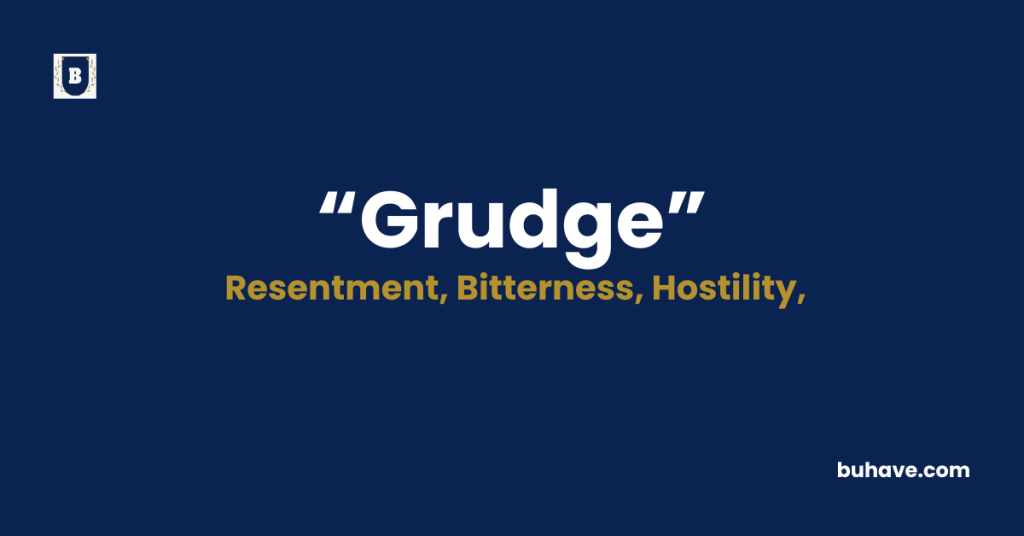The word ‘Grudge’ (Noun) describes a persistent feeling of resentment, bitterness, or ill will toward someone due to a past offense, insult, or injury. It often involves holding onto negative emotions and refusing to forgive. In this guide, you’ll explore everything about the word ‘Grudge’ its definition, history, usage, synonyms, antonyms, and more.
Grudge Explained in Depth
A complete and detailed guide to the word ‘Grudge’ including meaning, definition, examples, etymology, synonyms, and antonyms.
Meanings of Grudge
‘Grudge’ means a lingering feeling of resentment or anger, especially one that is harbored over time against someone who caused harm or offense. It reflects emotional baggage that is not easily let go.
Definition
‘Grudge’ is defined as a strong, long-lasting feeling of bitterness or resentment against a person due to a past insult, injury, or perceived wrongdoing.
Etymology
The word “Grudge” originates from the Middle English word grucchen, meaning “to grumble or complain,” which itself came from Old French grouchier. Over time, the word evolved to represent harboring resentment rather than just expressing dissatisfaction.
Example Sentences
- She still holds a grudge against her colleague for taking credit for her work.
- Letting go of old grudges can lead to a more peaceful and happy life.
- He bore a silent grudge for years without ever speaking about it.
Grudge Synonyms
- Resentment
- Bitterness
- Spite
- Hostility
- Rancor
- Enmity
- Ill will
- Animus
- Malice
- Grievance
Grudge Antonyms
- Forgiveness
- Reconciliation
- Compassion
- Kindness
- Goodwill
- Acceptance
- Peace
- Love
- Harmony
- Understanding
FAQs about Grudge
Here are some frequently asked questions (FAQs) about the word “Grudge”
1. What does “grudge” actually mean?
“Grudge” refers to a lasting feeling of anger or resentment held against someone because of a past wrong or offense.
2. Is holding a grudge unhealthy?
Yes. Holding a grudge can lead to stress, emotional exhaustion, and even affect your physical health and relationships.
3. How is a grudge different from anger?
Anger is usually a temporary emotion, while a grudge is a long-term resentment that may last for months or years.
4. Can a grudge be forgiven?
Yes. With self-awareness, communication, and forgiveness, it’s possible to let go of grudges and heal emotionally.
5. Why do people hold grudges?
People often hold grudges because they feel deeply hurt, betrayed, or believe justice was never served.

















